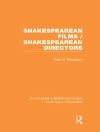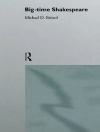The anthology ‘Pelléas and Melisande’ delves into the captivating interplay of symbolism and music, manifesting a rich tapestry of literary and musical styles from two towering figures of the late 19th and early 20th centuries. With a thematic focus on emotional depth and ethereal mystery, the collection transports readers into an evocative world, blurring the lines between text and melody. Masterpieces within offer glimpses into the rich, dreamlike realms that Maeterlinck and Debussy conjured, inviting readers to lose themselves in the intricate layers of meaning embedded in the narrative and compositions. Contributing to this collection are the influential artistic spirits of Maurice Maeterlinck and Claude Debussy, who celebrated the convergence of literature and music during the Symbolist movement. Maeterlinck’s play, revered for its atmospheric setting and psychological complexity, aligns seamlessly with Debussy’s impressionistic compositions, highlighting both artists’ profound impact on their respective fields. Together, their works provide a harmonious exploration of themes such as love, fate, and the human subconscious, revealing the synergy achieved through a collaborative artistic vision. ‘Pelléas and Melisande’ serves as an academic treasure for aficionados of cross-disciplinary art. This anthology not only broadens one’s understanding of Symbolist ideals but also offers a unique exploration of thematic depth and artistic expression. As readers immerse themselves in this collection, they will savor the strong dialogues between Maeterlinck’s poetic symbolism and Debussy’s musical innovations, gaining insight into a transformative era in European culture. Highly recommended for those eager to experience the powerful synthesis of literature and music, this volume promises an educative and enriching journey through diverse perspectives and styles.
A propos de l’auteur
Maurice Maeterlinck (1862–1949) was a prolific Belgian playwright, poet, and essayist writing at the turn of the 20th century, who was a key figure in the Symbolist movement. His works often explored themes of fate and human destiny, imbued with a mystical quality that transcended the realism of the time. Maeterlinck’s style is characterized by its poeticism, use of allegory, and exploration of the metaphysical. His renowned play, ‘Pelléas and Melisande’ (1892), is a masterpiece of Symbolist theatre, where he intricately wove themes of forbidden love, jealousy, and death, set in an ethereal and dreamlike environment. This play was later adapted into an opera by the composer Claude Debussy, which further solidified its position in the canon of classical arts. Maeterlinck’s contribution to literature was recognized with the Nobel Prize in Literature in 1911, cementing his status as one of the major figures of early 20th-century literature. His works are studied for their innovative use of language and the profound philosophical questions they raise about the nature of existence and the unseen forces that govern it.












